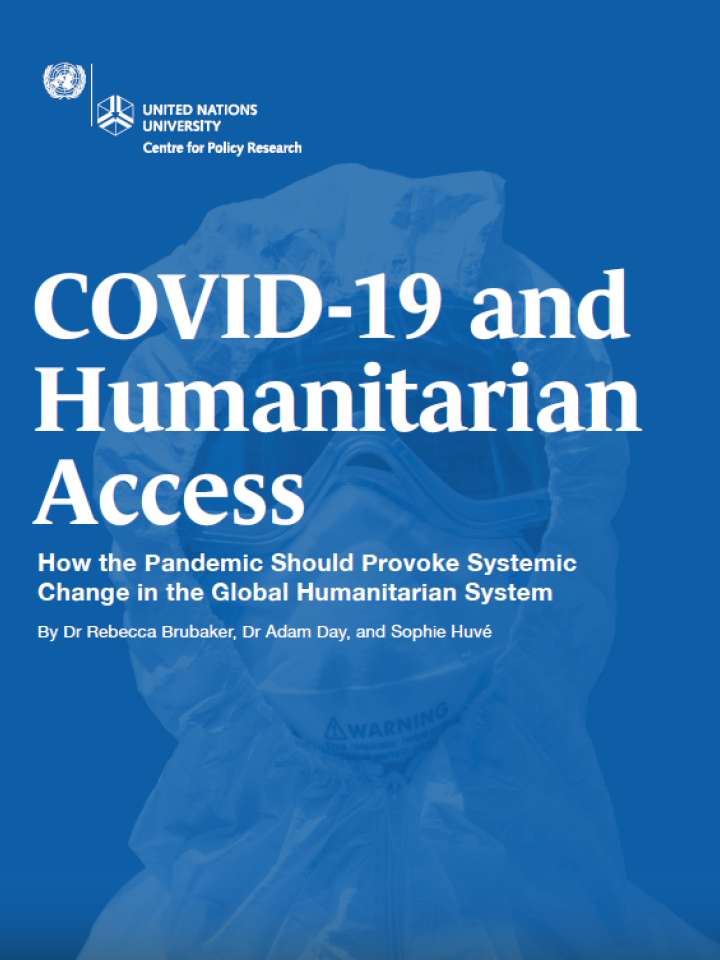COVID-19 and humanitarian access: How the pandemic should provoke systemic change in the global humanitarian system
This report examines the pandemic’s impact on humanitarian access and operations. The analysis is based on developments in Colombia, Myanmar, Nigeria, South Sudan, and Yemen. The report finds that the pandemic has contributed to significantly greater humanitarian needs in many settings, alongside a high likelihood of longer-term socio-economic risks that may push more people into vulnerability. At the same time, a combination of factors has acted against humanitarian access and delivery, including: restrictions of travel into and within countries; quarantining and other restrictions on group activities; increased bureaucratic hurdles by governments and other actors; and a global financial downturn that has reduced overseas spending.
One of the recommendations for governments, donors, the UN, and local, non-governmental organizations is to build a coherent, multi-scalar approach to risk. The surge in international support to meet the humanitarian crisis is an important part of the response to COVID-19, but it does not capture the full picture. So-called secondary effects include a downward spiral in the livelihoods of vulnerable populations and a weakened ecosystem of economies that will be poorly positioned to support them. Interviewees pointed to the need to gather highly localized data in order to understand the specific risks facing communities but also to understand their longer-term trajectories within bigger political economies. Putting resources into risk analysis that brings local, national, and regional information together into a systemic understanding will allow the humanitarian community to pivot from response to preparedness.
Explore further
